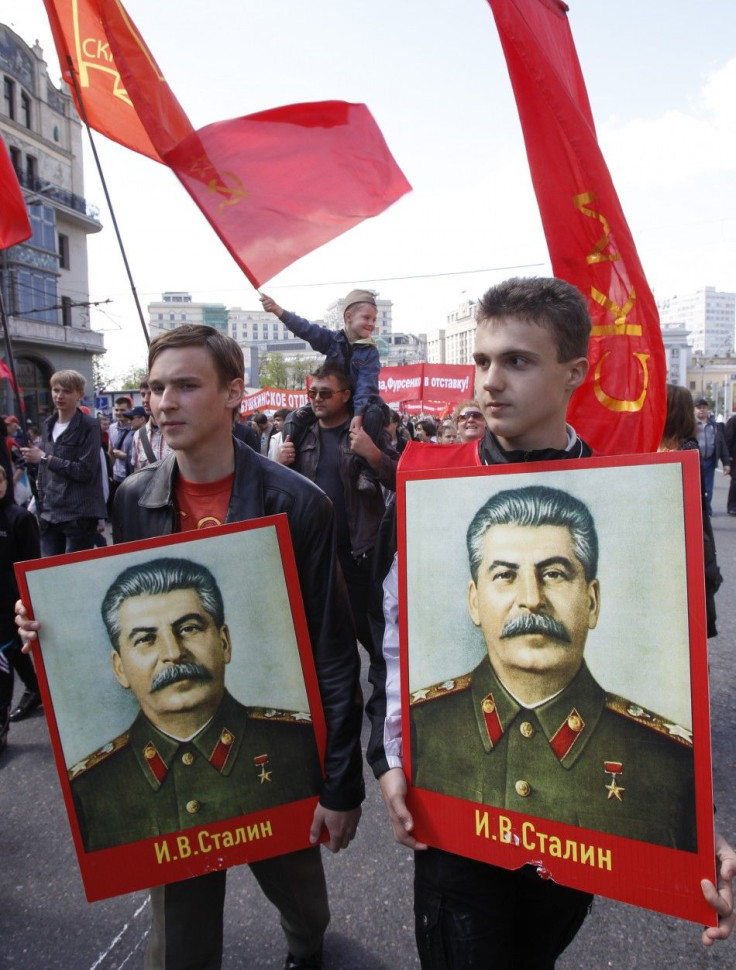Heroic Portrayal Of Stalin On Notebook Stirs Controversy

School notebook covers bearing the portrait of Josef Stalin have stirred up controversy in Russia as human rights activists and historians allege that the notebooks inspire a positive image of the Soviet dictator in children's minds.
Due to the controversial nature of the cover, published as part of a series called Great Russians that also features famous composers and czars, customers are queuing up to grab a copy of the notebook.
When children see this magnificent cover with handsome mustached Stalin, they perceive him as a hero, Nikolai Svanidze, a television journalist and historian, said on the website of the government's Public Chamber, the Associated Press reported.
Stalin, a contentious figure in present Russia, created a cult of personality in the Soviet Union in the early years of his rule between 1922 and 1953. He still commands high regard as one of the most influential figures who shaped Soviet history, despite having been responsible for deaths of millions of his own citizens.
Responding to appeals to ban the book cover, Russian Education Minister Andrei Fursenko said the government doesn't have the legal right to stop the publication of the book, but added that he disapproved of the notebook, which instilled a false image of Stalin in the minds of children.
A member of the Public Chamber Sergei Volkov likened the notebooks to German dictator Hitler's swastikas: I have not seen these notebooks, but if it's true, it is some kind of barbarity, because however you relate to this individual, no one can deny the fact that Stalin killed a lot of people. If, on school notebook there is a picture of this man, then, in my opinion, this is akin to Hitler's swastika, Volkov was quoted by Russian media.
The publishing house behind the series, however, has defended the cover in question, saying that Stalin deserves to be included in the series as a major figure of the last century.
If we do a series of great Russians, should we strike the 20th century from the list altogether? Artyom Belan, art director of the Alt publishing house that produced the notebooks as an educational endeavor, was quoted as saying.
Belan claimed that the personal opinions of Public Chamber members don't necessarily reflect those of the Russian people.
The Public Chamber is not a legislative body of the Russian Federation, and it expresses the personal opinion of its representatives. And their opinion, I think, is in complete contrast with the majority of Russian citizens, who several years ago recognized Stalin as one of the outstanding figures of Russian history, he said on the TV show Name of Russia.
The back cover of the notebook is an information page on Stalin, which has tried to strike a balance between documenting his achievements and the mass killings he gained notoriety for.
Even large book shops in Moscow haven't been able to keep up the high demand for the Stalin covers and have reportedly run out of stock and are awaiting new shipment.
© Copyright IBTimes 2024. All rights reserved.






















